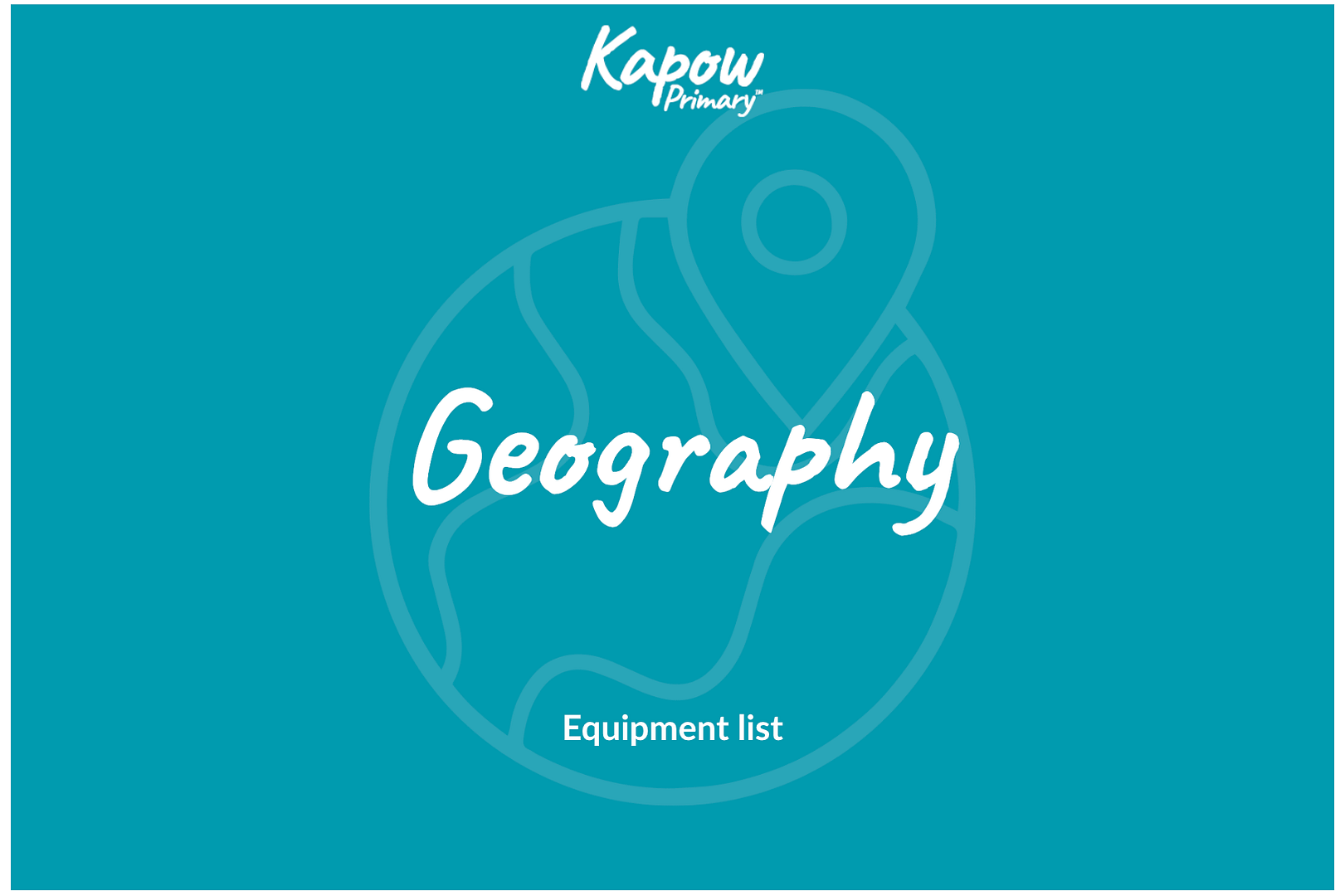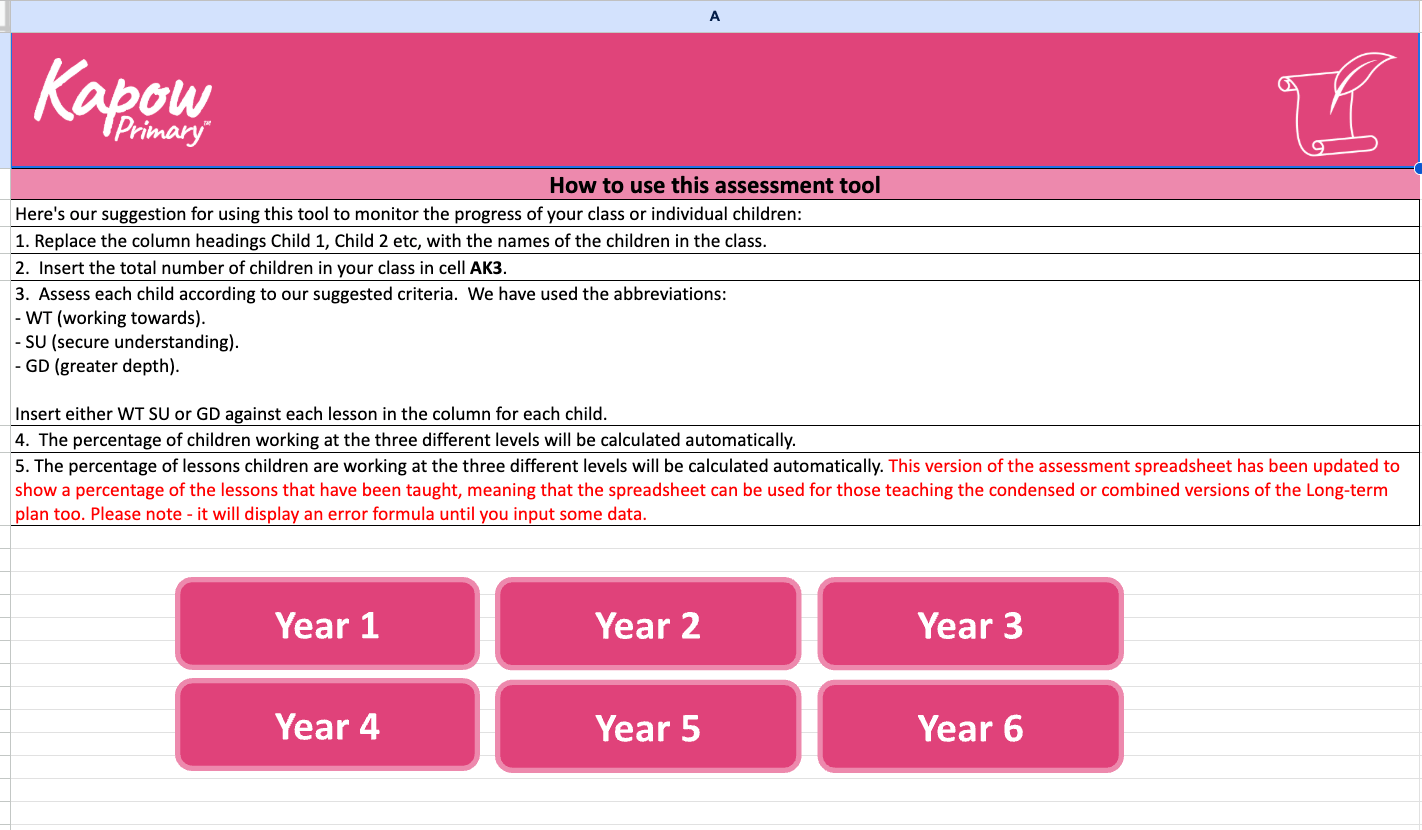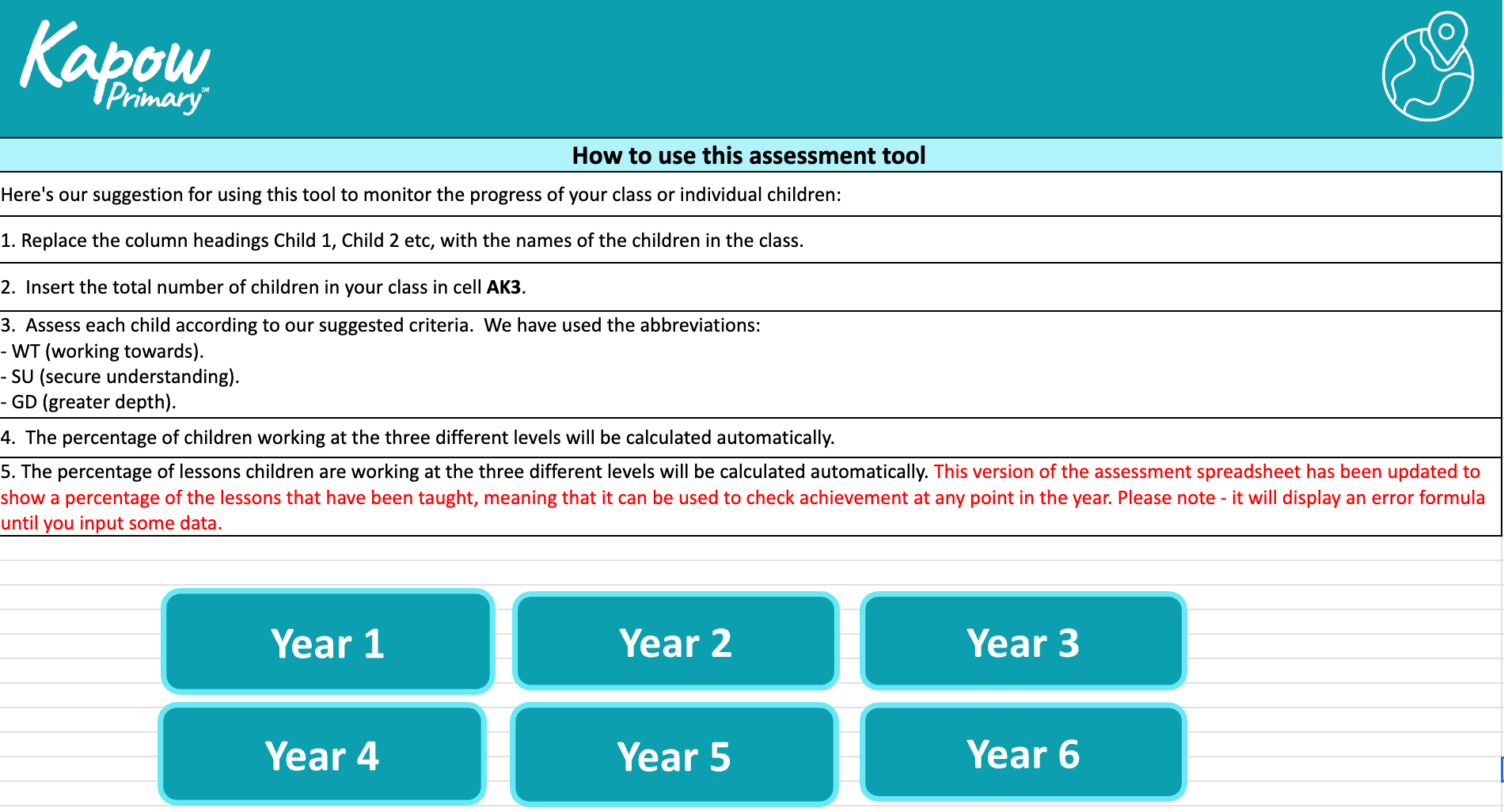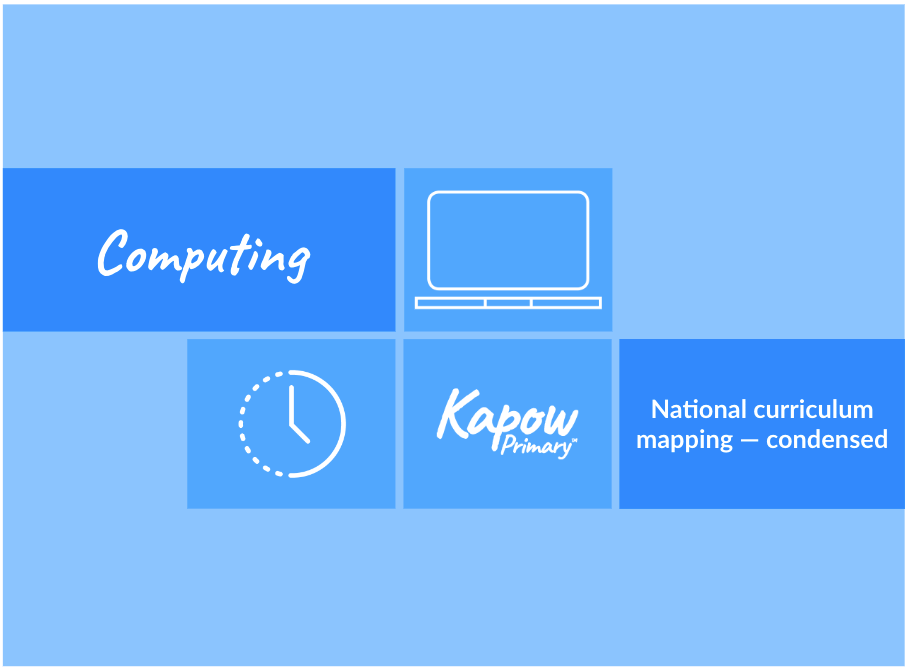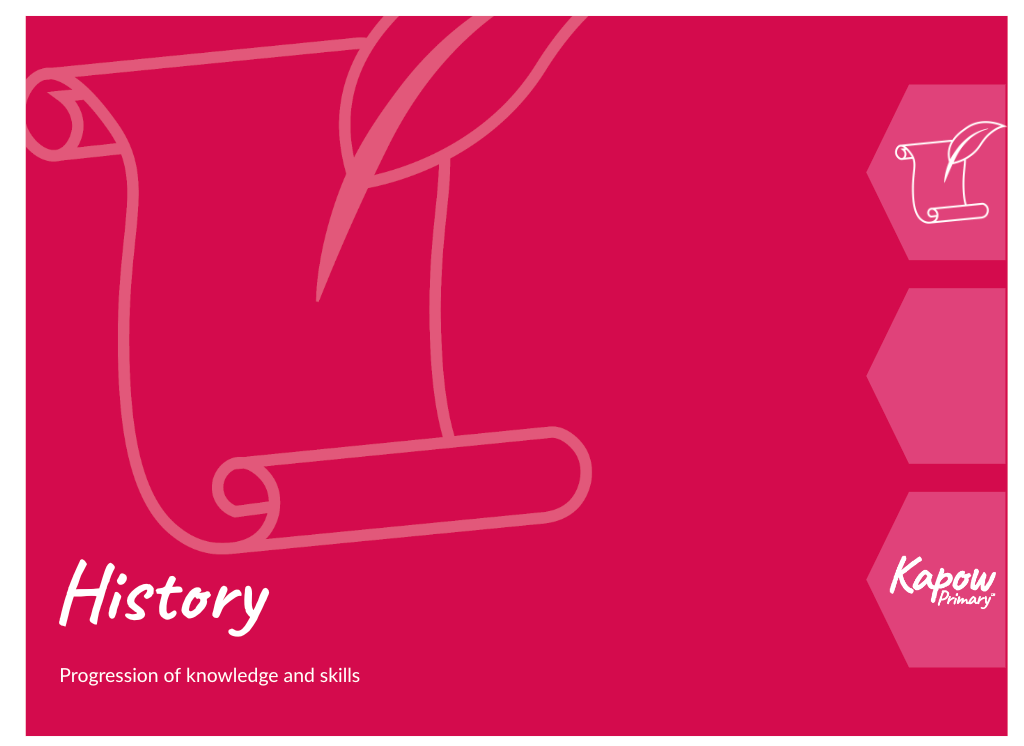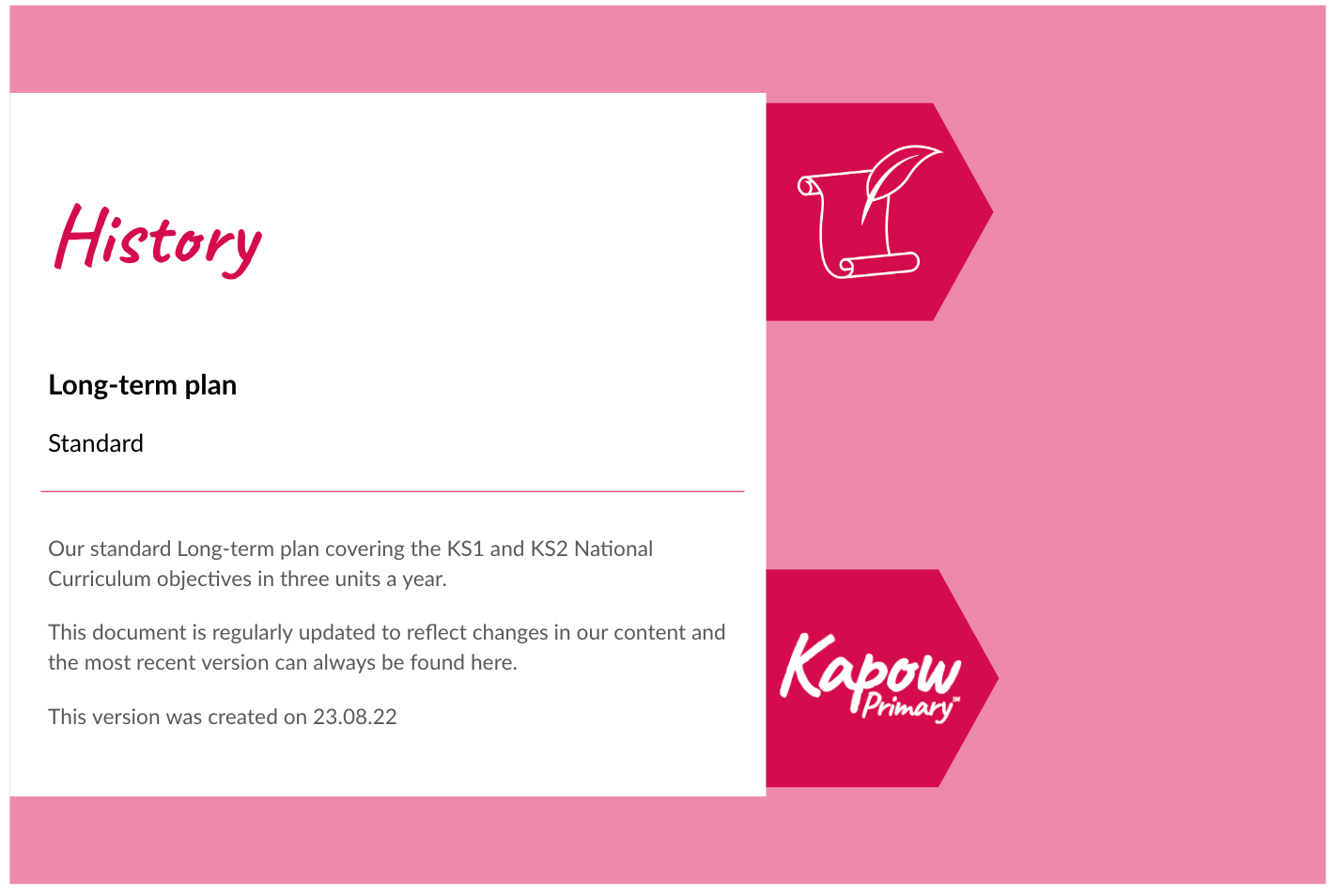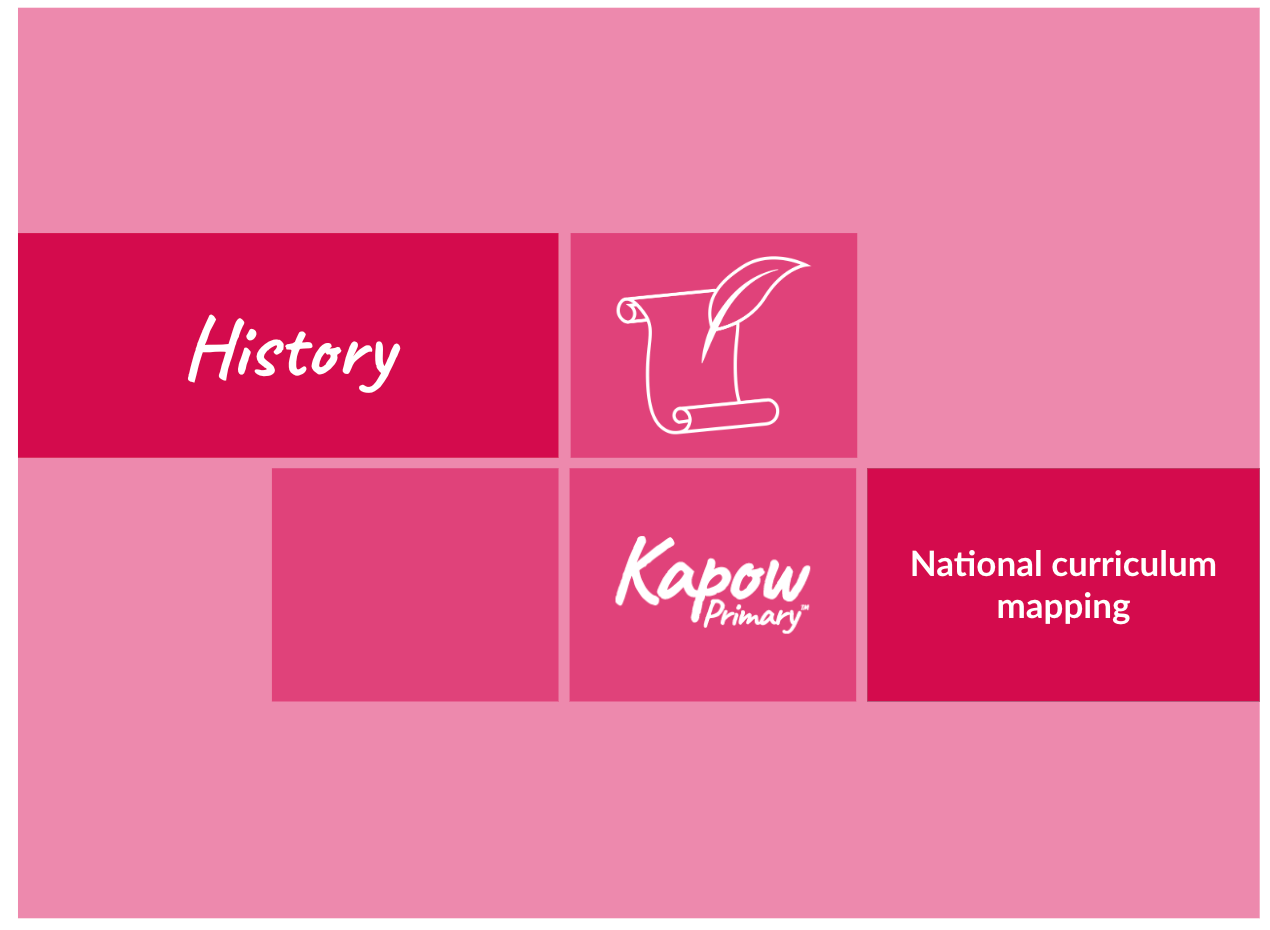year: Year 1
History: Assessment spreadsheet
Geography: Assessment spreadsheet
Computing: National curriculum coverage — condensed
Check which Kapow Primary Computing (condensed version) units correspond to the national curriculum attainment targets for every year group year 1 to year 6. Also includes the ELGs and Development matters statements for EYFS.
Art and design: Vocabulary progression
This document lists the vocabulary used in each unit of the Kapow Primary Art and design scheme from EYFS – Year 6 and highlights the vocabulary that is new.
History: Progression of skills and knowledge
History: Intent, implementation and impact
History: Long-term plan
This document has been updated for the academic year 2024/25. For further details, click ‘Read more’ below.
To view the previous History: Long-term plan, see the archived version.

